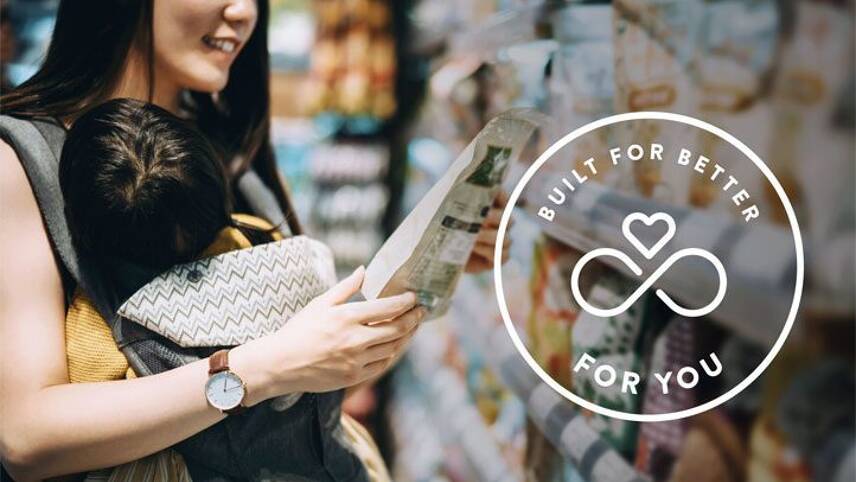Register for free and continue reading
Join our growing army of changemakers and get unlimited access to our premium content

Image: Walmart
Walmart unveiled its Built for Better platform last week, which is designed to help customers identify products that are aimed at improving the planet or personal health.
The Built for Better platform is available online and items listed on it meet independent standards. Icons on the platform will showcase more nutritious products, for examples, that meet standards for products made without specific materials or ingredients customers may not want. Standards include Great for You, EWG Verified, Standard 100 by OEKO-TEX, made without parabens and more.
As for sustainability, the Built for Better platform recognises more than 30 independent standards focused primarily on environmental benefits including Energy Star Certified, Rainforest Alliance Certified, Better Cotton Initiative and more.
Walmart’s senior vice president of sustainability Jane Ewing said: “We’re committed to helping our customers live better today and tomorrow. That’s why we’ve created Built for Better – an online shopping destination that makes it easy for customers to identify and shop for products that are built better – for them and for the planet.
“We’re taking the guesswork out for our customers. All they have to do is look on Walmart.com for products deemed ‘Built for Better’ to discover items that meet independent and authoritative standards for promoting personal well-being and reducing our impact on the environment.”
The news arrived in the same week that Walmart announced the closing of its inaugural green bond issuance, raising $2bn for initiatives that will decrease emissions and resource use, increase resource efficiency and conserve nature.
Funding will be put towards projects which meet the eligibility criteria of Walmart’s own Green Financing Framework, which was published last month.
Projects set to benefit from the bond proceeds include renewable energy generation schemes, energy efficiency improvements for buildings and the purchase of low-carbon vehicles, including electric and hydrogen options.
Walmart is notably aiming to reach net-zero operational emissions by 2040, without the use of offsetting, and to source and generate 100% renewable electricity by 2035.
Eco-labelling
The retailer is the latest to attempt to make shopping for sustainability easier for consumers.
Lidl GB is adding new on-pack ‘eco labels’ to dozens of its most popular own-brand product lines this October, giving shoppers more information about the carbon and biodiversity impact of their choices.
Under this system, food products are given a total score out of 100 points, as well as a colour code and a letter grade from A to E. Total scores are calculated using a life-cycle assessment, taking into account the life-cycle carbon, resource and nature impact of the product and its packaging. Extra points can be added to scores for products that have received third-party certification under schemes such as Fairtrade or the Rainforest Alliance.
June saw the launch of a new labelling scheme from new non-profit Foundation Earth, developed in partnership with Oxford University. A string of big-name businesses across the UK and EU are set to trial the labels from this autumn, including Tyson, Nestle, Sainsbury’s, Costa Coffee, Marks & Spencer and VeeTee Rice. Nestle notably first revealed that it was considering adding carbon labelling to products in 2019.
Other food and drinks companies to have launched or expanded efforts to better communicate the environmental impact of products with shoppers in recent months include Upfield, which owns brands including Flora, and Quorn Foods.
Matt Mace


Please login or Register to leave a comment.